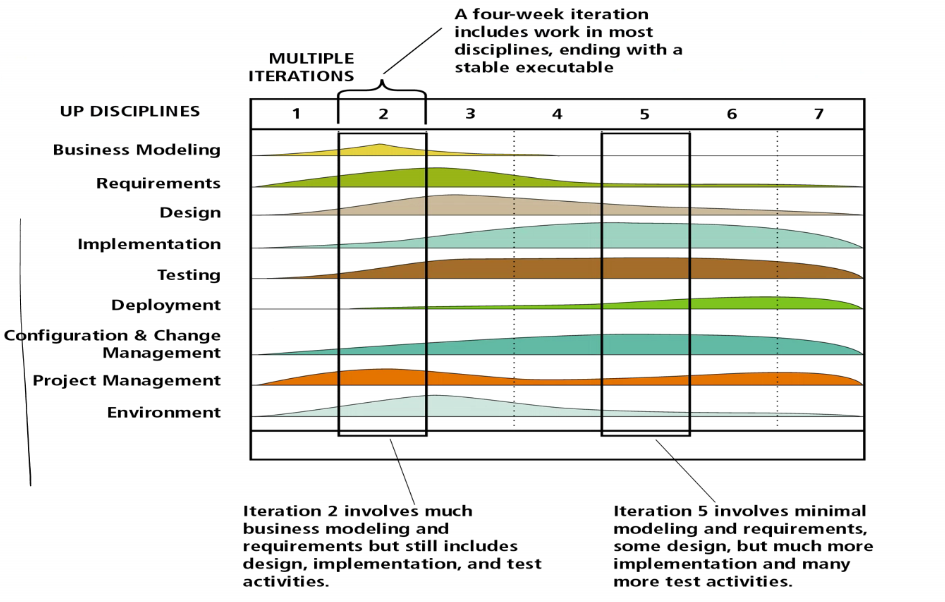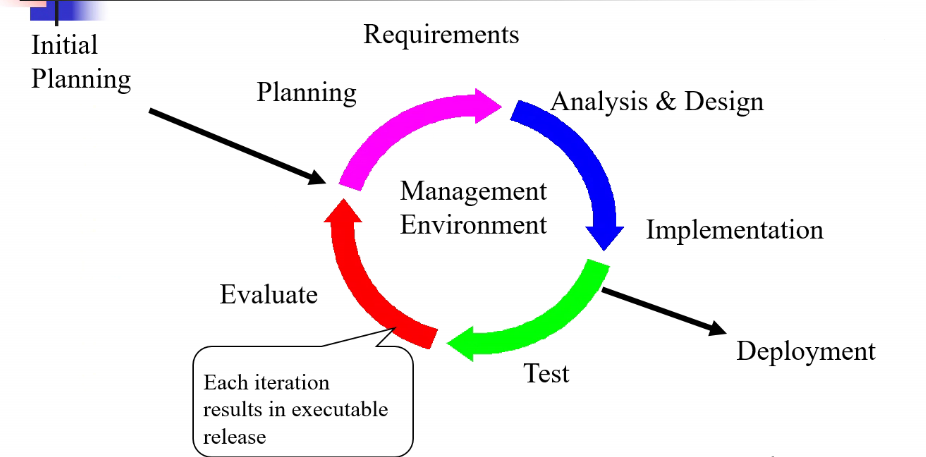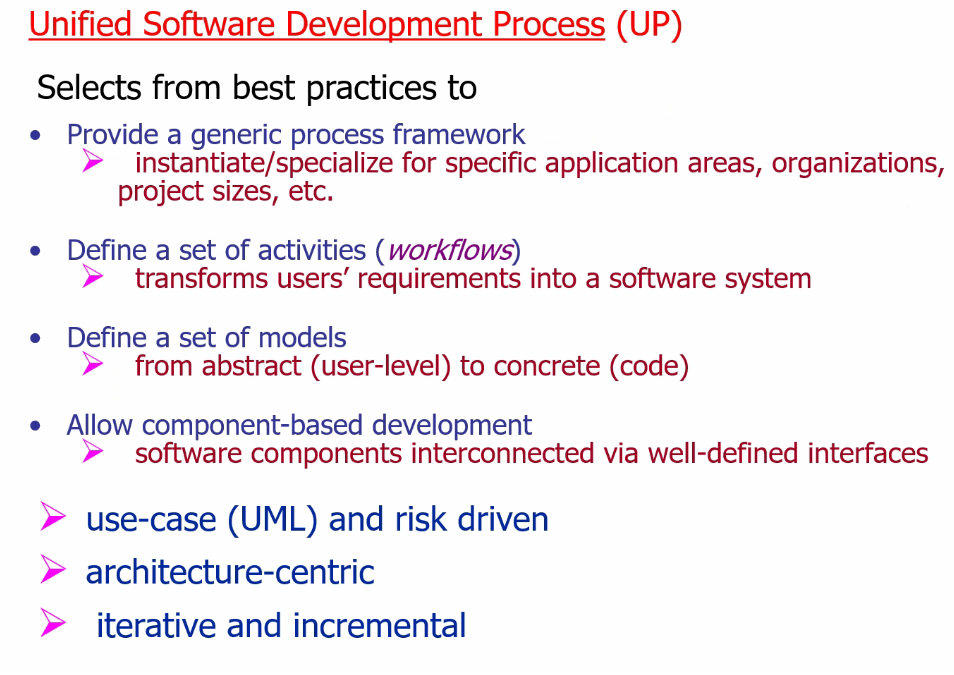Semester7
Notes of courses done/attended in semester 7 in college
Lecture 7
Today’s Agenda
- Unified Development Process
Last class
- Waterfall mdoel
- Spiral model
- Iterative model
- incremental model
ToDo: Benefits of an iterative model
Unified Development Process
- here we have 4 phases
- inception
- elaboration
- construction
- transition
- it is an iterative model
- divide big proj into number of iterations
- and in each iteration, we will do all parts : designing, planning, testing, coding
- some iterations will give me the product releases
- each iteration produces a working, executable, product that might not be a deliverable
- no rush to code
- agroUML, starUML - open source UML tools
- early iterations seek feedback from the customer. Risk and value to customer is managed through early feedback
- Customer is engaged continuously in evaluation and requirements gathering
- Arcchitecture is built during early iterations

- Component Based software development
- build s/w system as a set of s/w components interconnected via interfaces
- uses the UML
- use case driven
- a use case is a piece of functionality in the system that gives a user a result of value
- use cases capture functional requirements
- use case answers the quesion what is the system supposed to do for the user
- architecture-centric
- similar to architecture for building a house
- embodies the omst significant static and dynamic aspects of the system
- influenced by platform, OS, DbMS, etc
- related as function (use case) and form (architecture)
- iterative and incremental
- commercial projects continue many months and years
- to be most effective - break the project into iterations
- every iteration - identify use cases, create a design, implement the design
- every iteration is a complete development process

Iterations
- must be selected & developed in a planned way i.e. in a logcal order - early iterations must offer utility to the users
- iteration based on gp of use cases extensing the usability of the system developed so far
- iterations deal with the most imp risks first
- not all iterationsa re additive - some replace earlier iterations
benefits
- risks are mitigated earlier
- change is more manageable
Summary



